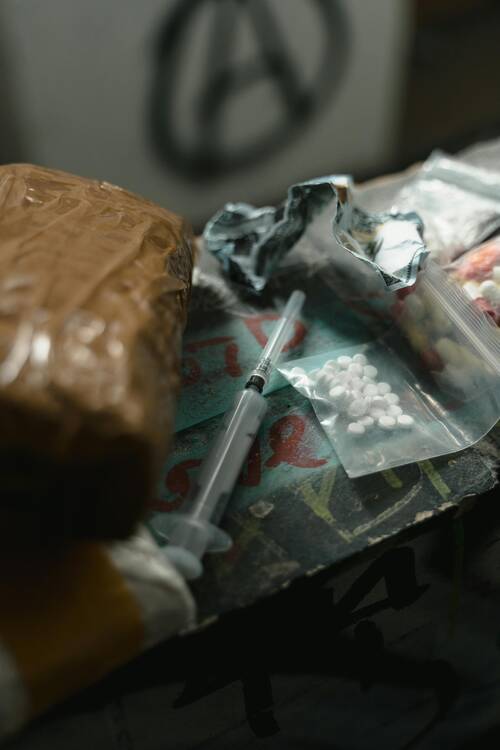
21 Oct Ready to Break Free? Here’s What to Look for in a Rehab Center
Breaking the chains of addiction is no small feat. But once you’ve made the decision to overcome it, the next step is finding the right rehab center to guide you through the process. With so many options out there, it’s easy to feel overwhelmed, but don’t sweat it. Here’s what you should focus on when picking the right place to help you regain control of your life.
What Types of Treatment Do They Offer?
Not all rehab centers are the same, and that’s a good thing. You want options. The best facilities offer a range of treatments because one size doesn’t fit all. Look for centers that offer both inpatient and outpatient programs so you can choose what fits your lifestyle and current situation.
Inpatient programs offer a more structured environment where you live on-site and can fully focus on recovery without distractions. Meanwhile, outpatient programs allow you to continue living at home while attending treatment during the day. This might work better if you have a family or job that you can’t step away from entirely.
You’ll also want to check if they offer specialized care, like dual-diagnosis treatment, which addresses both addiction and mental health issues. Many people dealing with addiction also struggle with conditions like anxiety or depression, so finding a place that tackles both can be a game-changer.
When searching for effective recovery options, consider comprehensive drug addiction rehab treatment in Texas to receive personalized care and support on your journey to sobriety
Do They Have Experienced, Compassionate Staff?
Rehab isn’t just about the programs offered; it’s about the people guiding you through the experience. You want to be sure the team has the credentials but also that they’re empathetic, understanding, and truly invested in your success.
Look for licensed professionals who specialize in addiction treatment, including therapists, counselors, and medical staff. Certification isn’t just a piece of paper here – it’s proof that they know their stuff.
But just as important is how they make you feel. When you meet the staff or speak with them over the phone, ask yourself: Do I feel comfortable with them? Do they seem to genuinely care? Recovery is tough, and you want people in your corner who will lift you up, not just follow a script. If you’re not feeling good vibes, that’s a red flag.
Location, Location, Location
The right environment can make or break your recovery experience. When looking into rehab centers, ask yourself whether you want to stay close to home or venture further out. Both have their pros and cons.
Staying close to home means you’re near your support system – family and friends. You’ll also be in a familiar environment, which can be comforting. On the flip side, going somewhere new could give you a fresh start, away from the triggers and negative influences that fueled your addiction in the first place.
It’s all about what feels right to you, but either way, be sure to look for a facility that offers a peaceful, calming environment. Nature, for example, can play a huge role in the healing process. Think serene surroundings, lots of light, and space to breathe. When you’re researching how to find good rehab centers, keep the physical environment in mind as much as the programs themselves.
What’s Their Approach to Aftercare?
The journey to sobriety doesn’t end the day you leave rehab – that’s just the beginning. This is why aftercare is such an important part of choosing a rehab center. Make sure the facility you’re considering has a solid plan in place for your continued support.
You’ll want to know if they offer follow-up counseling, whether in-person or virtual, as well as support groups like 12-step programs or alumni networks. These are great tools for staying connected and building a strong, sober community. It’s easy to feel isolated once you leave the safety net of rehab, but with a good aftercare plan, you’ll have the support you need to keep pushing forward.
No one likes to think about slipping up, but it happens. The best rehab centers will prepare you with the skills and tools to handle cravings and triggers once you’re back in the real world. You don’t want to be left high and dry once you’re on your own. They should help you build strategies for when temptation strikes.
Where Is It, and How Accessible Is It?
When it comes down to it, accessibility is key. Whether you’re looking for addiction treatment near Laguna Beach, D.C., or anywhere in between, the most important thing is that the center you choose fits your personal needs. Think about how easy it is for you (and your loved ones) to get there. Are there transportation options? Can family members visit? Rehab can be a long process, and having family nearby can make the journey a little easier.
This isn’t just about proximity, though. It’s about making sure the center is a good fit for your lifestyle and values. For instance, some people thrive in urban settings, where they feel connected to the hustle and bustle. Others need a more secluded, nature-based facility to unwind and focus on healing. Trust your gut and go with the vibe that feels right for you.
And if you’re into the idea of holistic treatments, like meditation, yoga, or acupuncture, make sure the center offers those options. More and more rehab centers are embracing alternative therapies to help clients feel more centered and grounded during the process.
Taking the Leap to Recovery
Choosing a rehab center isn’t just about the brochures or what’s trending on the web. It’s about finding a place that feels right for you – where you’ll feel supported and understood and, most importantly, where you’ll be able to do the deep work of healing. When you’re ready to break free from addiction, taking the time to research and ask questions will help you find a rehab center that offers the best chance for success. Whether you’re staying close to home or venturing far, make sure the place you choose has the treatments, staff, and environment that can help you get your life back on track.
If you or someone you know is struggling or in crisis, help is available. Call or text 988 or chat at 988lifeline.org. To learn how to get support for mental health, drug or alcohol conditions, visit FindSupport.gov. If you are ready to locate a treatment facility or provider, you can go directly to FindTreatment.gov or call 800-662-HELP (4357).
The information on MedicalResearch.com is provided for educational purposes only, and is in no way intended to diagnose, cure, or treat any medical or other condition.
Some links are sponsored. Products, services and providers are not tested, warranted or endorsed.
Always seek the advice of your physician or other qualified health and ask your doctor any questions you may have regarding a medical condition. In addition to all other limitations and disclaimers in this agreement, service provider and its third party providers disclaim any liability or loss in connection with the content provided on this website.
Last Updated on December 6, 2024 by Marie Benz MD FAAD

